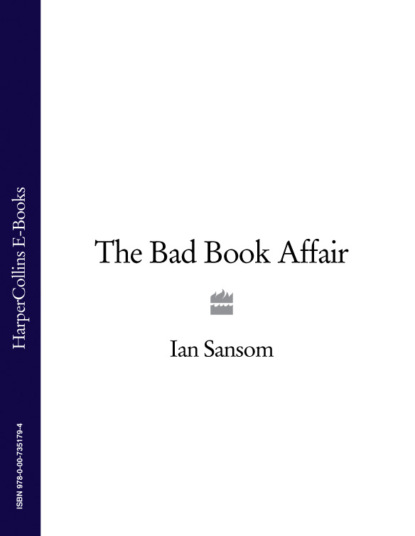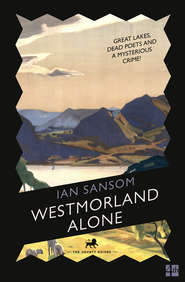По всем вопросам обращайтесь на: info@litportal.ru
(©) 2003-2024.
✖
The Bad Book Affair
Автор
Год написания книги
2018
Настройки чтения
Размер шрифта
Высота строк
Поля
‘Buttermilk,’ he said as he got up from the table. ‘Let’s see what we can do about that. Ladies, I hope I can rely on your vote.’
Of course he could rely on their votes: Maurice was the tallest, and the best-dressed, and the most pointlessly and aggressively articulate Unionist politician in Northern Ireland, where there was plenty of competition in the pointlessly aggressive articulation stakes and no competition whatsoever between parties outside of their secure geographical and sectarian areas, which made Maurice’s re-election a real possibility. All he needed to do was to win back the popular vote, and to get people on his side again including his wife, Pamela, who’d stood by him through thick and thin, even though she had every reason not to, given the…unique…stresses and strains that Maurice’s career had placed upon their marriage.
‘Here he comes!’ said Minnie. ‘Quick! Sit up!’
‘Macher,’ said Israel.
‘What!’ said Ted.
‘It’s Yiddish,’ said Israel.
‘I don’t like the sound of it,’ said Ted.
‘It’s just a word,’ said Israel. ‘It means—’
‘I don’t care what it means,’ said Ted. ‘Shut up. Here comes his Lordship. I’m going to give him a—’
And then there he was, in the flesh, Maurice Morris, looming over them, teeth a-sparkling, tan a-glowing, body a-facing them—whenever Maurice spoke he consciously moved his body to face the person he was talking to, so that they could feel the full force of his personality.
‘Gentlemen, I’m Maurice Morris. I wonder if I can rely on your vote next Wednesday?’
‘Aye,’ said Ted, resolve failing, and blushing like a schoolgirl.
‘Marvellous. And how about you, young man?’
Israel looked up at Maurice Morris, up at the blue suit, at the shiny tie, the rosy cheeks, the hair with some sort of shiny product in it, and he smiled.
‘Nope,’ he said. ‘Thanks.’
‘Oh,’ said Maurice Morris.
‘He’s Jewish,’ said Ted, apologetically.
‘Ah,’ said Maurice Morris.
‘What?’ said Israel.
‘Also, he’s not from round here,’ added Ted. ‘So he’s probably not illegible.’
‘Eligible,’ corrected Israel.
‘It depends if he filled in the census,’ said Maurice Morris, speaking to Israel as though he were wheelchair bound. ‘Did you?’
‘I have no idea,’ said Israel. ‘But I’ll not be voting for you anyway.’
‘So, anyway,’ said Minnie, glaring at Israel, beginning to usher Maurice Morris away.
‘Well, good to meet you, gents. Enjoy your coffees,’ said Maurice, ready to move on.
‘Hold on,’ said Israel. ‘I’ve got a question for you.’
‘Ssshh,’ said Minnie.
‘No, no, fire away,’ said Maurice. ‘Always open to questions.’
‘It’s a policy question,’ said Israel.
‘Good,’ said Maurice.
‘What are you going to do about global warming?’
Global warming was one of the many things that Israel felt bad about.
Minnie frowned but Maurice smiled his weird politician’s smile. This was not the usual tray-bake kind of a question. This was one of those questions that he’d said something about in his brochure. One of the things that had always distinguished Maurice from his rivals, according to his campaign literature, was the sheer quality and quantity of his campaign literature; his election brochure had been printed at an expense and in a style that might more properly have been used to advertise the first release of a complex of luxury apartments in Majorca, or a major development opportunity on the north coast, and Maurice also blogged (at mnmblogspot.com), and did email circulars and had a MySpace site; he was, according to his brochure, Northern Ireland’s first and most successful cyberpolitician. And he couldn’t remember for the life of him what it was he’d said in the brochure about global warming.
‘That’s still one for the scientists,’ he told Israel.
‘Not according to the scientists it’s not,’ said Israel, one of whose only companions these days was the BBC World Service late at night and early in the mornings.
‘Ha!’ said Maurice, changing the subject rapidly. ‘Well, it’s been good talking to you.’
‘I would still like an answer,’ said Israel.
‘Sorry, I don’t think we’ve met,’ said Maurice to Israel. ‘You are?’
‘I’m a librarian,’ said Israel.
‘Really?’ said Maurice.
The phrase ‘I’m a librarian’ usually excited a number of depressingly predictable responses, in Israel’s experience, responses that usually began with an ‘Oh’ and were soon followed by a vague and slightly uncomfortable look in the eye. Maurice’s response was unusual.
‘The mobile librarian?’ said Maurice.
‘Yes,’ said Israel.
‘Isaac Angstrom?’
‘Israel Armstrong,’ said Israel. Had Maurice been reading John Updike? Couples?
‘Israel Armstrong,’ said Maurice, savouring the words in his mouth. ‘The mobile librarian.’
‘Yep,’ said Israel. ‘That’s me.’
‘Well, I hope you’re ashamed of yourself, you sick bastard,’ said Maurice, striding away.
5 (#ulink_c49867f8-b848-593e-9b2c-130b92d15832)
‘Ach, brilliant!’ said Ted, again and again, after they’d left Zelda’s and they were driving to their next port of call, Tumdrum Primary School, where Israel was expected to help the children with their reading. ‘Brilliant! Brilliant. Priceless.’











